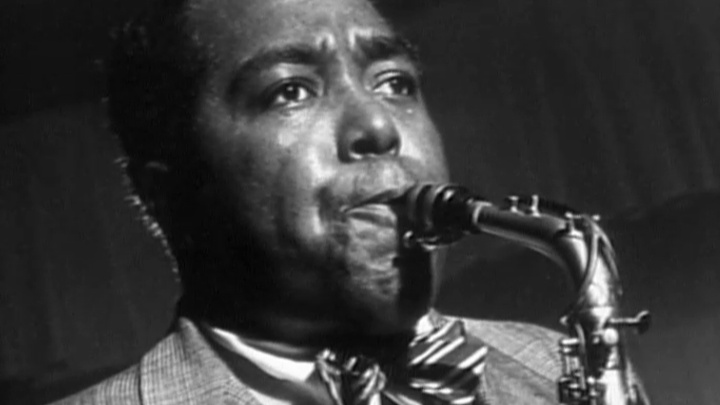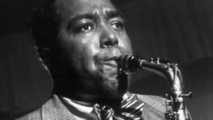The opera, "Yardbird," which opens Friday at Opera Philadelphia, offers a rare modern, black role in opera and brings the added challenge of incorporating jazz into the quintessentially European art form.
"As an African American myself and as an artist who had done all my work playing characters who aren't necessarily African American, I felt it's part of my responsibility... to realistically portray him," Brownlee told AFP ahead of the world premiere.
Parker's life, with all its drama and tragedy, lends itself readily to opera. The saxophonist became one of jazz's most influential artists, pioneering the fast-paced and improvisation-based genre of bebop, even though he lived only 34 years.
When he died in 1955, Parker's body was so ravaged by heroin abuse that the coroner thought he was twice his age. But Brownlee said that "Yardbird," featuring a libretto by playwright Bridgette Wimberly, would go beyond the standard narrative of Parker as an addict and examine earlier scars in his life, including his fatherless childhood in segregated Kansas City.
The score, composed by Swiss American saxophonist Daniel Schnyder, brings jazz elements to opera. Brownlee -- best known for his Rossini roles and his smoothness at delivering difficult high notes -- for the first time sings scat, showing a spontaneity alien to opera.
- What would Rossini think? -
Plenty of singers of African descent have succeeded in opera, among them Shirley Verrett, Leontyne Price and Jessye Norman, who is often considered among the greatest modern sopranos.
Price was known for playing the title role of the enslaved Ethiopian princess in Verdi's "Aida." But explicitly black roles in opera have been few.
Brownlee, an affable 42-year-old with a hearty laugh, said that the absence was simply due to the era in which the great composers lived.
"During the time of Mozart, black people in his mind were slaves, so they weren't portrayed as kings and queens and other things," he said.
"But I also feel that the way I sing, and the way I perform, had I been around during the time of Rossini, I would like to believe he would have appreciated the singer that I am and would have given me the opportunity regardless of my race," he said.
Brownlee, who at 1.68 meters (5-foot-6) is shorter than many opera leading men, said that most roles are not specific to race or height.
A character "has to be handsome, so I have to be my version of handsome. I have to be my version of elegant," he said.
One of the most obvious African roles in opera is the title character in "Otello," based on Shakespeare's play of a Moorish general.
"People have tried to push me to sing the role of Otello because, obviously, I'm a black man. It's not right for me," he said.
Still, Brownlee said he was open to modifying the role eventually to create his own signature "Otello" in the version of Rossini, with whom he is so closely identified. (Verdi also composed an "Otello" which is even more unsuited to Brownlee's bel canto style.)
"It would be from the standpoint of trying to bring the character to life, because it would be more believable if people look at me," he said.
"Because this is natural; it doesn't rub off," he said of his skin, with a laugh.
- A larger opera audience -
Raised in the Rust Belt town of Youngstown, Ohio, Brownlee grew up with Gospel music and plays bass guitar but initially had little exposure to opera.
"I had no idea what an opera singer sounded like other than on TV when you see someone with horns on their head, and long braids, singing in a language that you don't understand," he said.
Brownlee had anticipated becoming a lawyer. But his life changed at a school competition where, as he mockingly imitated an opera singer, he was told he had a gift.
"People say all the time that your career, or your life's work, finds you out," he said.
Brownlee hopes that "Yardbird" -- which will later head to the Apollo Theater, New York's famed jazz venue -- will get more opera lovers interested in jazz and vice versa.
"We hope that the result is that it expands people's minds," he said.
----------------------------------------------------------------------------------------------------
"As an African American myself and as an artist who had done all my work playing characters who aren't necessarily African American, I felt it's part of my responsibility... to realistically portray him," Brownlee told AFP ahead of the world premiere.
Parker's life, with all its drama and tragedy, lends itself readily to opera. The saxophonist became one of jazz's most influential artists, pioneering the fast-paced and improvisation-based genre of bebop, even though he lived only 34 years.
When he died in 1955, Parker's body was so ravaged by heroin abuse that the coroner thought he was twice his age. But Brownlee said that "Yardbird," featuring a libretto by playwright Bridgette Wimberly, would go beyond the standard narrative of Parker as an addict and examine earlier scars in his life, including his fatherless childhood in segregated Kansas City.
The score, composed by Swiss American saxophonist Daniel Schnyder, brings jazz elements to opera. Brownlee -- best known for his Rossini roles and his smoothness at delivering difficult high notes -- for the first time sings scat, showing a spontaneity alien to opera.
- What would Rossini think? -
Plenty of singers of African descent have succeeded in opera, among them Shirley Verrett, Leontyne Price and Jessye Norman, who is often considered among the greatest modern sopranos.
Price was known for playing the title role of the enslaved Ethiopian princess in Verdi's "Aida." But explicitly black roles in opera have been few.
Brownlee, an affable 42-year-old with a hearty laugh, said that the absence was simply due to the era in which the great composers lived.
"During the time of Mozart, black people in his mind were slaves, so they weren't portrayed as kings and queens and other things," he said.
"But I also feel that the way I sing, and the way I perform, had I been around during the time of Rossini, I would like to believe he would have appreciated the singer that I am and would have given me the opportunity regardless of my race," he said.
Brownlee, who at 1.68 meters (5-foot-6) is shorter than many opera leading men, said that most roles are not specific to race or height.
A character "has to be handsome, so I have to be my version of handsome. I have to be my version of elegant," he said.
One of the most obvious African roles in opera is the title character in "Otello," based on Shakespeare's play of a Moorish general.
"People have tried to push me to sing the role of Otello because, obviously, I'm a black man. It's not right for me," he said.
Still, Brownlee said he was open to modifying the role eventually to create his own signature "Otello" in the version of Rossini, with whom he is so closely identified. (Verdi also composed an "Otello" which is even more unsuited to Brownlee's bel canto style.)
"It would be from the standpoint of trying to bring the character to life, because it would be more believable if people look at me," he said.
"Because this is natural; it doesn't rub off," he said of his skin, with a laugh.
- A larger opera audience -
Raised in the Rust Belt town of Youngstown, Ohio, Brownlee grew up with Gospel music and plays bass guitar but initially had little exposure to opera.
"I had no idea what an opera singer sounded like other than on TV when you see someone with horns on their head, and long braids, singing in a language that you don't understand," he said.
Brownlee had anticipated becoming a lawyer. But his life changed at a school competition where, as he mockingly imitated an opera singer, he was told he had a gift.
"People say all the time that your career, or your life's work, finds you out," he said.
Brownlee hopes that "Yardbird" -- which will later head to the Apollo Theater, New York's famed jazz venue -- will get more opera lovers interested in jazz and vice versa.
"We hope that the result is that it expands people's minds," he said.
----------------------------------------------------------------------------------------------------









 Home
Home Politics
Politics











